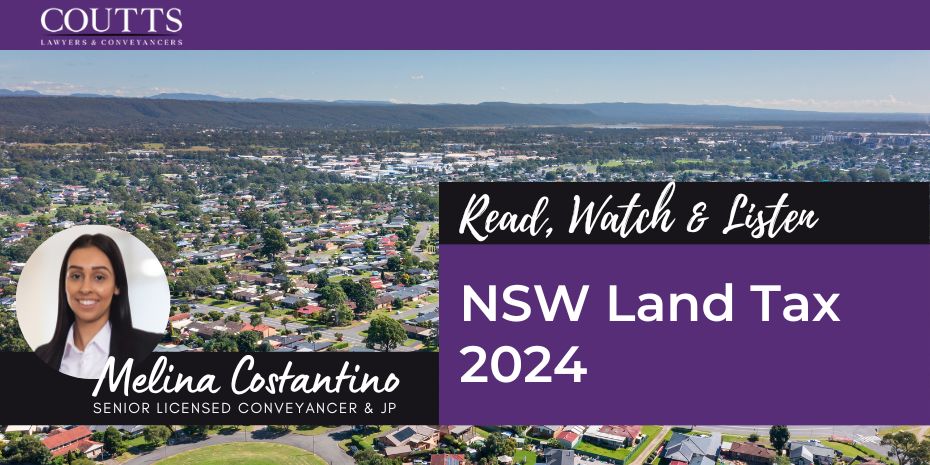Title searches are a requirement for many kinds of matters. However, In New South Wales, it is particularly important to attach a Title Search to a Contract of Sale as it is a requirement when selling your property. Information in this document is important for would be purchasers to have access to so that they can make informed decisions before they exchange contracts. But what is a Title Search?
A Title Search is quite simply a current copy of the Certificate of Title for any given property. The Certificate of Title is the official legal record for the ownership of the property and whilst there is quite often a physical paper title, with the move towards e-Conveyancing, the majority of titles are becoming electronic. In New South Wales title information is controlled by Land Registry Services. Completing a Title Search can provide a lot of information regarding a property, including:
Owners of the Property
A Title Search will always show you who the current owners of the property are. This can be an individual, multiple individuals or even a company. When multiple people own the property the Title Search will also provide information on how they own the property such as, as joint tenants or tenants in common. If they own the property as tenants in common, the Title Search will also so you how much of the property each individual owns for example 50/50 or 30/70. It is important to check the Title Search when purchasing a property so that you know the people selling it are entitled to do so.
Mortgages over the Property
The Title Search will show you whether or not there is a mortgage associated with the property or not. If there is a mortgage on the property, you will be able to find out from the Title Search who the mortgage is with. This is important because when you sell or purchase a property, it will need to be discharged. It is quite often the case that the mortgagee will hold the original Certificate of Title until the mortgage is paid in full.
Easements
Having an easement on a title means that another party or parties has the right to cross or otherwise use a portion of the land. For example, it is very common for water authorities to have service locations on properties that they need to be able to access in order to maintain their systems. It is important for property owners and purchasers to be aware of easements as there is often restrictions and a responsibility to respect them. Building illegally over an easement can have serious consequences.
Covenants
A covenant is a form of agreement that creates an obligation on the owner of the property. A covenant can be positive (which requires the property owner to do something) or negative (which restricts a property owner from doing a certain thing). Forms of covenants include but are not limited to what kind of fencing needs to surround the property (including colours), to maintain drainage systems or to not leave caravans or tents at the front of the property. It is common for new estates to have covenants to ensure a certain level of aesthetic appeal. It is important to know what covenants apply to a property as you will be required to adhere to them.
Caveats
A caveat is a sign that there is someone else who has an interest in that property other than the current owners or mortgagee. In New South Wales, to put a caveat on a property, the caveator must lodge an application with Land registry Services. It essentially serves as a warning to potential purchasers that there may be some unresolved issues in relation to the property or monies owed to the caveator. For example, if there are family law proceedings in relation to the property that have not finalised the owner of the property will not be able to sell it.
Leases
This is quite common if you are buying a commercial property with a leasee in the building. This is because any retail/commercial lease of more than three years is required to be registered on the Certificate of Title to protect the tenant’s interests. If you buy a property with a registered lease on it, you will be required to recognise the lease and become the new landlord.
For further information please don’t hesitate to contact:
Christine Johnsen
Conveyancing Assistant
christine@couttslegal.com.au
02 4607 2105
This blog is merely general and non specific information on the subject matter and is not and should not be considered or relied on as legal advice. Coutts is not responsible for any cost, expense, loss or liability whatsoever in relation to this blog, including all or any reliance on this blog or use or application of this blog by you.



